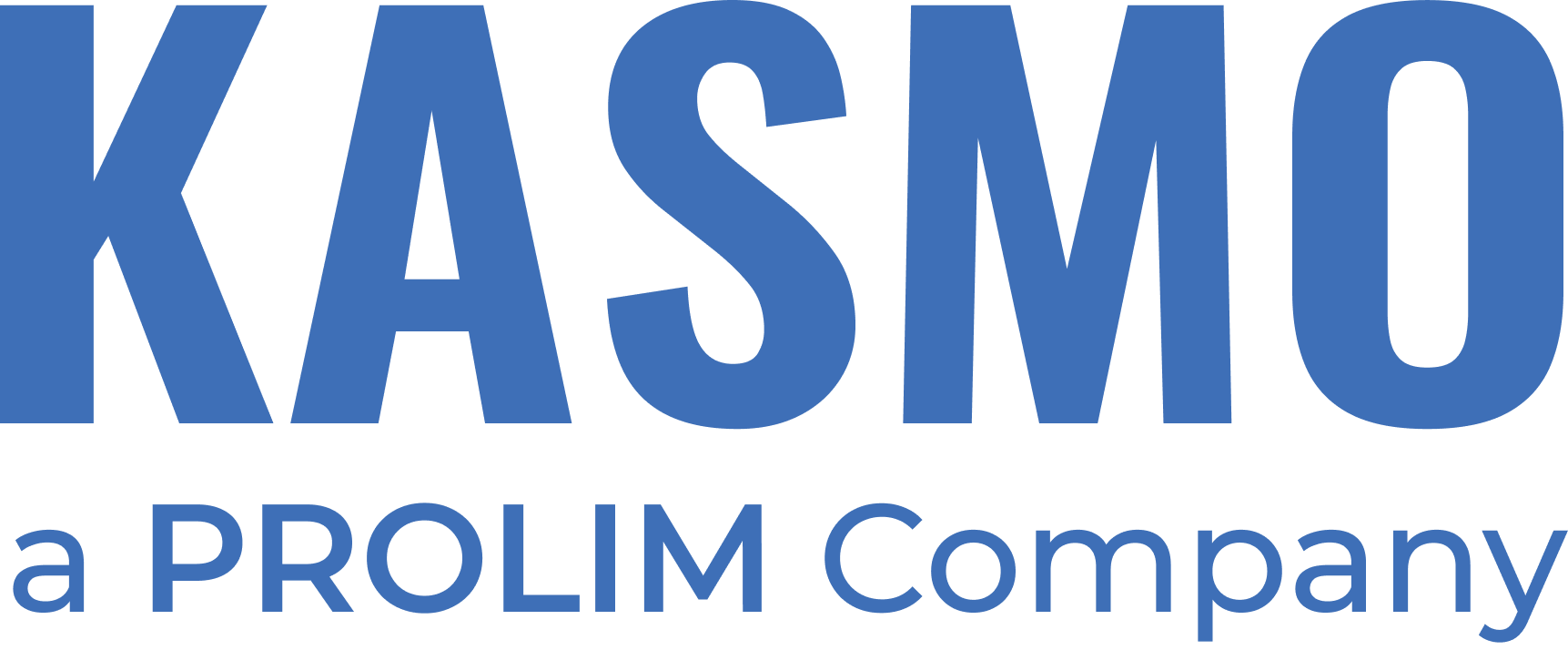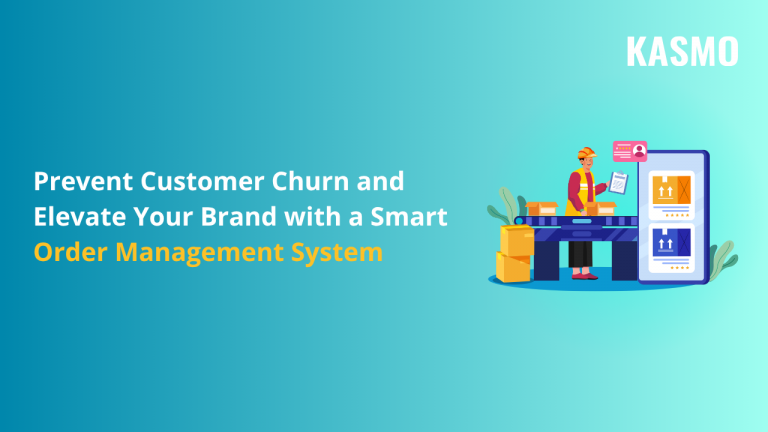Gen Z and millennial customers want e-commerce and consumer goods companies to ship their products faster. This has created a significant challenge for businesses to meet expectations while maintaining product quality and shipping goods on time. According to research by Salesforce, 64% of businesses are finding it difficult to meet rising customer expectations. A robust order management system (OMS) can help businesses streamline their business operations, reduce manual labor, and create a seamless, faster order fulfillment experience for their customers.
A Brief Overview of Order Management System
An OMS is a software solution or platform that helps businesses manage the entire order lifecycle—from getting orders, processing goods, tracking sales and streamlining the delivery process. It also provides end-to-end visibility into inventory and allows businesses to integrate multiple touchpoints in the supply chain to ensure smooth operation. The goal of an OMS is to ensure that products are delivered to customers quickly and accurately, improving the customer experience and supporting business growth.
Key Features of Effective Order Management
These features in order management system helps businesses track sales, get insights into inventory and how fast customers are receiving their products:

Visibility
One of the key features of an OMS is its ability to offer end-to-end visibility into the order fulfillment process. Businesses can track inventory levels, order status, and delivery progress in real time. This visibility helps businesses anticipate potential issues before they arise, allowing them to take proactive actions. This visibility provides actionable insights and allows businesses to address issues promptly, preventing delays, improving efficiency.
Intelligence
Order management systems are not just tools for tracking orders—they are intelligent systems that can help businesses make better decisions. By leveraging data from customer interactions, sales patterns, and order history, businesses can fine-tune their order management processes. This includes customizing these processes to meet specific business requirements, performance goals, and customer preferences.
Flexibility
An OMS allows businesses to manage complex orders by breaking them down into smaller, more manageable components. By adapting to the unique requirements of each order, businesses can deliver more personalized experiences and meet customer expectations.
Real-Time Inventory
An effective OMS offers real-time visibility into inventory levels, ensuring that businesses know exactly what products are available, which products have the highest demands, and how many products are in transit. This reduces the risk of stockouts or overstocking. It enables businesses to optimize inventory levels across various locations, improving speed and efficiency of order fulfillment (can be defined as the process of receiving a customer order to delivering the product, including inventory management, picking, packing, shipping, and managing returns).
Fulfillment Optimization
A strong OMS uses data to recommend the most efficient order fulfillment options, based on customer preferences, budget, and delivery time. This optimization ensures that businesses can meet customer demands quickly while minimizing shipping costs.
What is the Role of An Order Management System?
The role of an OMS goes beyond just managing orders. Customers interact with brands through multiple channels. OMS plays a central role in coordinating order fulfillment across various channels, including managing orders from online stores, physical stores in multiple locations, customer support centers, and more!
With the multi-channel capability of OMS, businesses can maintain consistency in their operations. Additionally, the system consolidates order information and ensures that products are available and ready for delivery no matter where the order originates.
When a business is using omnichannel platforms, it is vital that they have the ability to track and manage orders across multiple channels. Whether a customer places an order online or through a call center, businesses should ensure that they are delivering the same seamless experience.
How Does Order Management System Helps Businesses Streamline Operations?
Here’s how OMS helps businesses streamline operations:

Streamlines Order Processing
An OMS simplifies order processing by automating tasks like order confirmation, shipping status updates, and payment processing. By consolidating all order information into a centralized system, businesses can ensure that every order is being tracked, reducing the chances of errors and delays.
Facilitates Smoother Inventory Management
Managing inventory becomes much easier with OMS. This system enables businesses to keep track of stock levels in real time, across multiple warehouses or locations. The OMS can also help businesses forecast inventory needs based on sales data, preventing stockouts or overstock situations. Leveraging OMS is invaluable, as it helps businesses optimize the supply chain and improve efficiency.
Efficient Order Fulfillment and Shipping
Efficient order fulfillment and timely shipping are critical to a business’s success. An OMS helps businesses streamline these processes by automating the picking, packing, and shipping stages. It also allows businesses to track orders in real time and provide customers with updates on their order’s status. Real-time tracking helps businesses identify issues before they escalate and gives them the ability to make quicker decisions.
Easy Returns and Refunds
An OMS automates the returns and refunds process, which can be time-consuming and prone to errors. This automation enables businesses to process returns and issue refunds more quickly, providing customers with a better experience. By reducing manual intervention, businesses can also reduce the risk of errors in the returns process.
How to set up An Order Management System?
Kasmo – a global Salesforce Summit (Platinum) partner helps organizations drive innovation and improve their end-to-end business process by leveraging Salesforce Commerce Cloud. Our 70+ Salesforce certified experts at the Center of Excellence (CoE) in Bengaluru specialize in Data Cloud, Industry Clouds and Agentforce and provides cutting-edge solutions to global clients in industries like automotive, manufacturing, nonprofits, and edtech. By leveraging Kasmo’s Order Management Solution you can reduce the time taken for your products to reach customers and streamline the entire supply chain.
How Salesforce Commerce Cloud Helps Businesses
Businesses need an order management system (OMS) that not only ensures efficient order fulfillment but also enhances customer experience. Salesforce Commerce Cloud, with its integrated Order Management capabilities, provides a comprehensive, customer-first solution designed to streamline operations, reduce costs, and drive growth. With Order Management solution, businesses get a unified platform that allows them to manage a multitude of orders seamlessly, fulfill them quickly, and offer exceptional service across multiple channels.
Centralizes Order Data for Seamless Customer Experience
Salesforce Commerce Cloud can be integrated seamlessly with Customer 360. This ensures that businesses get access to a holistic view of each customer’s interactions, order histories, mode of payment and their preferences. Centralizing order data not only streamlines internal workflows but also empowers customer service agents to provide personalized and efficient service.
Automates Fulfillment Workflows for Increased Efficiency
Salesforce Commerce Cloud leverages powerful automation tools to streamline order fulfillment processes. Through its intuitive drag-and-drop interface, businesses can quickly create customized workflows that automate routine tasks such as order creation, inventory management, and shipment tracking.
For example, businesses can automate order status updates, such as sending notifications to customers when their orders are shipped, delivered, or ready for pickup. This reduces the burden on customer service teams and helps business owners enhance customer experience by providing real-time updates on order statuses.
Facilitates Real-Time, Omni-Channel Inventory Visibility
Most customers connect with brands through multiple channels. Businesses must ensure that inventory is available across physical stores, warehouses, and online platforms. Salesforce Commerce Cloud offers real-time inventory visibility, enabling businesses to track stock levels at any given moment, regardless of where their warehouses are located.
The integration of location-level inventory solution allows businesses to organize inventory by location. This feature is particularly beneficial for businesses offering services like “buy online or pick up in-store” facility, enabling customers to easily check product availability in nearby stores.
Enables Third-Party Partner Integrations
Salesforce Commerce Cloud is designed to integrate seamlessly with a wide range of third-party applications and service providers. This enables businesses to connect their existing systems with partners for inventory optimization, store apps, and last-mile fulfillment services (refers to the final stage of the delivery process, where goods are moved from a transportation hub or distribution center to customer’s doorstep).
Enhances Customer Engagement Through Digital Customer Service
Salesforce Commerce Cloud also supports customers through digital customer engagement, helping businesses to manage communication across diverse channels, including social media, email, chat, and phone. This omnichannel approach ensures that customers receive timely responses to their inquiries and can track their orders from any channel.
Conclusion
A robust order management system is essential for businesses looking to meet the growing demands of today’s consumers. By automating key processes, improving inventory management, and enhancing the customer experience, OMS enables businesses to streamline their operations and deliver faster, more efficient order fulfillment. With tools like Salesforce Commerce Cloud, businesses can overcome the challenges of order management and continue to grow in an increasingly competitive market.



